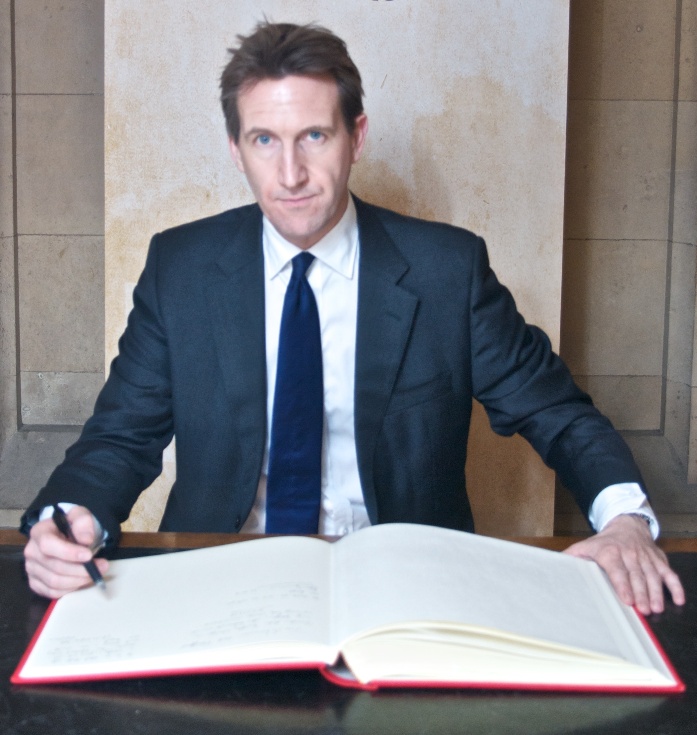Jeremy Hunt – 2018 Speech to the Illegal Wildlife Trade conference
Below is the text of the speech made by Jeremy Hunt, the Foreign Secretary, on 11 October 2018.
On behalf of the Foreign and Commonwealth Office – and our co-hosts, the Department for International Development and the Department for Environment, Food and Rural Affairs – I’m delighted to welcome you to this conference.
Our task simply is to address one of the greatest challenges facing humankind. How can we protect the magnificence of the natural world from the criminal gangs who threaten human beings just as surely as they plunder the planet?
The world’s population now stands at 7.5 billion human beings, that’s a fivefold increase on a century ago, reflecting humanity’s remarkable progress against poverty and disease. Since 1990, the global infant mortality rate has fallen by over 50 per cent. Almost everywhere, people are living longer and healthier lives – and we should give thanks for that cardinal achievement.
Yet as we have succeeded, other species have gone dramatically into decline. It was Yuval Noah Harari, from Hebrew University in Jerusalem, who described homo sapiens as the “deadliest species in the annals of Planet Earth”. By about 12,000 years ago – long before our ancestors invented the wheel or iron tools – we human beings had already exterminated about half of the world’s large mammals.
Today, the process has gone still further. If you placed all the people in the world on a giant set of scales, they would weigh about 300 million tonnes. But if you gathered all the surviving wild animals – of every size and species – and placed them on the other end of the scales, their combined mass would be less than 100 million tonnes, three times less than us.
The global population of vertebrate animals has fallen by almost 60 per cent since 1970. It’s even worse news for particular animals: forty years ago, Africa had about 1.3 million elephants. Today, the figure is down by two thirds to 415,000. In Asia, the population of wild tigers has dropped by 95 per cent since 1900.
The illegal wildlife trade is not the sole cause of the disappearance of wildlife, but we all suffer from its malign effect.
The same criminal networks that smuggle tusks and horns and hardwood also traffic in guns and drugs and people. They launder money, engage in modern slavery, fund conflict and thrive on corruption. By one estimate, the illegal wildlife trade is the fourth most profitable criminal enterprise in the world, generating as much as $23 billion.
Last year, the authorities in Hong Kong achieved the biggest ivory seizure in history, intercepting a shipment of tusks weighing 7.2 tonnes. For that one consignment, the smugglers or their accomplices will have killed at least 700 elephants.
In the process, these bandits were looting the natural wealth of Africa. From Mongolia to Laos, from Angola to the Amazon, the illegal wildlife trade robs sovereign nations of their resources and deprives some of the poorest countries in the world of the revenues of their biodiversity.
The World Bank estimates that governments lose as much as $15 billion every year from illegal logging. Money that could be spent on schools and roads and hospitals; instead much of it goes to criminal gangs who harm people even as they despoil nature.
If anyone asks why we devote effort and resources to combating the illegal wildlife trade when millions of human beings still endure war, hunger and disease, then here is the answer. This trade threatens some of the poorest people in the world, destroying livelihoods, empowering criminals, and depriving governments of the means to provide essential services.
The interests of humanity cannot be separated from the interests of the natural world. The one depends on the other.
So we are all here today because of our common resolve to combat this trade – and we are all looking for the most effective methods. Let me share some of the actions that Britain has taken, and where we think they could be more effective alongside a global coalition.
My predecessor, Lord Hague, called the first London Conference on this subject in 2014 and the framework we agreed then provides the best guidance for our response.
Firstly, we need to eradicate the market for illegal wildlife products. Secondly, we must ensure our laws are strong enough to deter the criminals. Thirdly, we must rigorously enforce those laws. Finally, we need to provide sustainable livelihoods for those who might otherwise be tempted by the short term gains of poaching.
Last year, the British Parliament passed the Criminal Finances Act, strengthening our powers to combat money laundering and freeze unexplained wealth. Since then, we have placed another law before Parliament that would ban domestic ivory sales.
We are now testing our legislation and enforcement capabilities using the methods developed by the International Consortium on Combating Wildlife Crime. Britain will be the first G20 country to go through this exercise and put our own house in order.
We will also contribute £250 million to the UN’s Global Environment Facility by 2022. Along with other donors, we secured agreement for a 30 per cent increase in the budget of the UN’s Global Wildlife Programme.
The Department for International Development is working alongside many of the governments represented here today in order to help provide alternative livelihoods for poor communities.
We are helping countries to improve their governance, strengthen the rule of law and achieve sustainable economic growth. I was pleased to announce another £3.5 million of technical support to help countries “follow the money” behind the grand corruption associated with the illegal wildlife trade.
The criminals don’t respect borders; if one nation toughens its laws, the smugglers will move into a neighbour. If we improve the protection of one endangered wildlife population, they will target another species – or the same species in a different country.
Our response has to rest on international cooperation and it’s so fantastic that 85 governments are represented here today. We welcome the trans-frontier approach to conservation – including “Green Corridors”- which we will do everything we can to support.
This conference will complement our joint work at the UN and CITES, which is the right forum to agree international rules and identify any species in need of extra protection.
But we know that governments and international organisations can’t address this problem alone. That’s why this conference includes businesspeople, NGOs, scientists, law enforcement experts and youth organisations.
We have brought the Interpol Wildlife Crime Working Group to London because we need to ensure that seizures result in prosecutions and convictions.
I offer a special welcome to the game rangers who are present. In the last year, over 100 brave rangers have been killed in the struggle to protect wildlife. We must do more to equip and safeguard the courageous people who risk their lives to guard the natural majesty of their homelands.
I welcome the representatives of communities who live alongside wildlife. I know how easy it is to romanticise that experience if you happen to reside in the safety of London so we all look forward to hearing more about how to reduce human-wildlife conflict from people who understand the issue best.
Yesterday, His Royal Highness the Duke of Cambridge launched a new private sector Financial Taskforce, designed to bolster the struggle against the illegal wildlife trade.
I hope that we all will use this conference to create new networks and learn from what has gone right as well as what has gone wrong. Nepal, for example, has doubled its tiger population since 2009; in fact not a single rhino or tiger has been poached in Nepal for the last four years.
Let me close by repeating my welcome to London. Let us all leave this conference with a renewed determination to thwart the criminal gangs who inflict grave injury on people with deadly consequences for animals. If we fail to act, quite simply we will never be forgiven.


